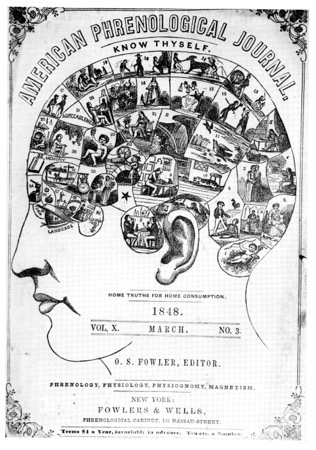Menu

 A week ago I put up what I thought would be a provocative post on LinkedIn on the subject of psychometric tests. It’s a subject I have addressed before. Once with a slight tongue-in-cheek suggestion that Tom Lehrer’s Poisoning Pigeons in the Park provided a role model in how to treat the cult end of this particular market. On an earlier occasion, I linked much modern HR practice to panel beating, then there was ‘Prevarication by platitude’, not to mention the dangers of taking therapeutic sideways into organisational design and the need to shift from a focus on individual qualities to a more collective understanding. Then there was a quick reference to Huxley’s Brave New World, a link to a lovely little satire on Myers-Briggs, another link to The Skeptics Web Site and a more elaborate post on Identity back in 2006 which I need to return to at some stage. On a more positive side, I’ve used the original seven Belbin types for a few decades, but I don’t like the modern version. There is more on this subject, but those are I think the main posts.
A week ago I put up what I thought would be a provocative post on LinkedIn on the subject of psychometric tests. It’s a subject I have addressed before. Once with a slight tongue-in-cheek suggestion that Tom Lehrer’s Poisoning Pigeons in the Park provided a role model in how to treat the cult end of this particular market. On an earlier occasion, I linked much modern HR practice to panel beating, then there was ‘Prevarication by platitude’, not to mention the dangers of taking therapeutic sideways into organisational design and the need to shift from a focus on individual qualities to a more collective understanding. Then there was a quick reference to Huxley’s Brave New World, a link to a lovely little satire on Myers-Briggs, another link to The Skeptics Web Site and a more elaborate post on Identity back in 2006 which I need to return to at some stage. On a more positive side, I’ve used the original seven Belbin types for a few decades, but I don’t like the modern version. There is more on this subject, but those are I think the main posts.
To be positive about some of this; anything which gets people to look at themselves from different perspectives and/or triggers some form of reflection, can’t do any harm and may do good. The problem is when you invest your particular set of categories lithesome form of scientific objectivity. Now there is a scale here from things like the Enneagram and Myers-Briggs with have been identified as pseudoscience on the basis that they are “so vague and malleable that anything relevant can be shoehorned to fit the theory” to material with significant peer-reviewed support – although that can also be questioned. I’ve also used the I Ching, astrology and the Harry Potter Sorting House test (the official one of course) to achieve the same result. But the mass classification of staff is another matter altogether.
But even at the scientific end, there are issues. PRISM for example quotes one study with MRI scanning of lover/stranger reactions as authority for a context-free framework and also states that it “is based on the simple fact that all behaviour is created in the brain and that the brain’s main role is to ensure that the species – animal or human – survives” which is questionable on so many levels. What is interesting is that they all, in the main, focus on the individual and on behaviour which is always an emergent property that may then act as a modulator. Social interactions matter (see the banner picture) and those interactions, including stories, as well as the body itself are all part of a complex, if messily coherent, set of interactions over time. There are lots of ways of doing this which don’t require us to put people into little boxes. I started to list some of those in my recent series on leadership.
So to that LinkedIn post which I expected to provoke a few attacks. To my surprise, it didn’t apart from a couple of people in the business of promoting their own tests. I’ve linked in the open sentence and I recommend reading through the responses. Part of my reason for writing this blog is to ensure it isn’t lost. Here it is, with an HTML qualifier:
<provocation> Have you noticed how sections of the psychology profession produce multiple ‘scientifically validated’ psychometric tests all of which claim to be objective, life changing and transformational? They start with a hypothesis or two which came from their reading and/or observation, construct a questionnaire which makes those hypotheses self-evident to respondents, run it over a few hundred companies, publish a paper in a complicit and compliant journal (peer reviewed by people deeply immersed in the same practices), and then build a business based on pretty graphics some wonderful platitudes and a certified practitioner scheme for those who enjoy collecting new varieties of snake oil for their consultancy practice.
At a very simple level they can’t all be right, but they all use the same approach – so may be that is flawed? More seriously they are ‘measuring’ emergent properties and assuming those properties have causality; worse they are assuming context free use of said models. Attempts to replicate the classic experiments in the field have largely failed (one test of is it really a science) and these are they guys who in an earlier age legitimised lobotomies. </provocation>.
Yes I know there is a lot of good stuff and we draw on and use that, but there is something seriously wrong at the commercial end. Probably one of the more important points I made here is that they can’t all be right, but they all claim to be. Now I’m prepared to agree that most of the respectable ones have the ability to help us to see aspects of what might emerge as truth over time, but none of them has the universality or predictive powers they claim. Phrenology is not dead, it has just discovered a new body to animate like the Brollachan in Alan Gardner’s The Moon of Gomrath; we need to seek the Mothan on the old straight track at moonrise.
American Phrenological Journal is in the public domain and obtained from Wikimedia. The banner picture is cropped from an original by Arthur Poulin on Unsplash
Cognitive Edge Ltd. & Cognitive Edge Pte. trading as The Cynefin Company and The Cynefin Centre.
© COPYRIGHT 2024

The picture on the left was taken on 18th June 2018 when I collected my ...
I really can’t remember a time in my life which didn’t feature science fiction or ...